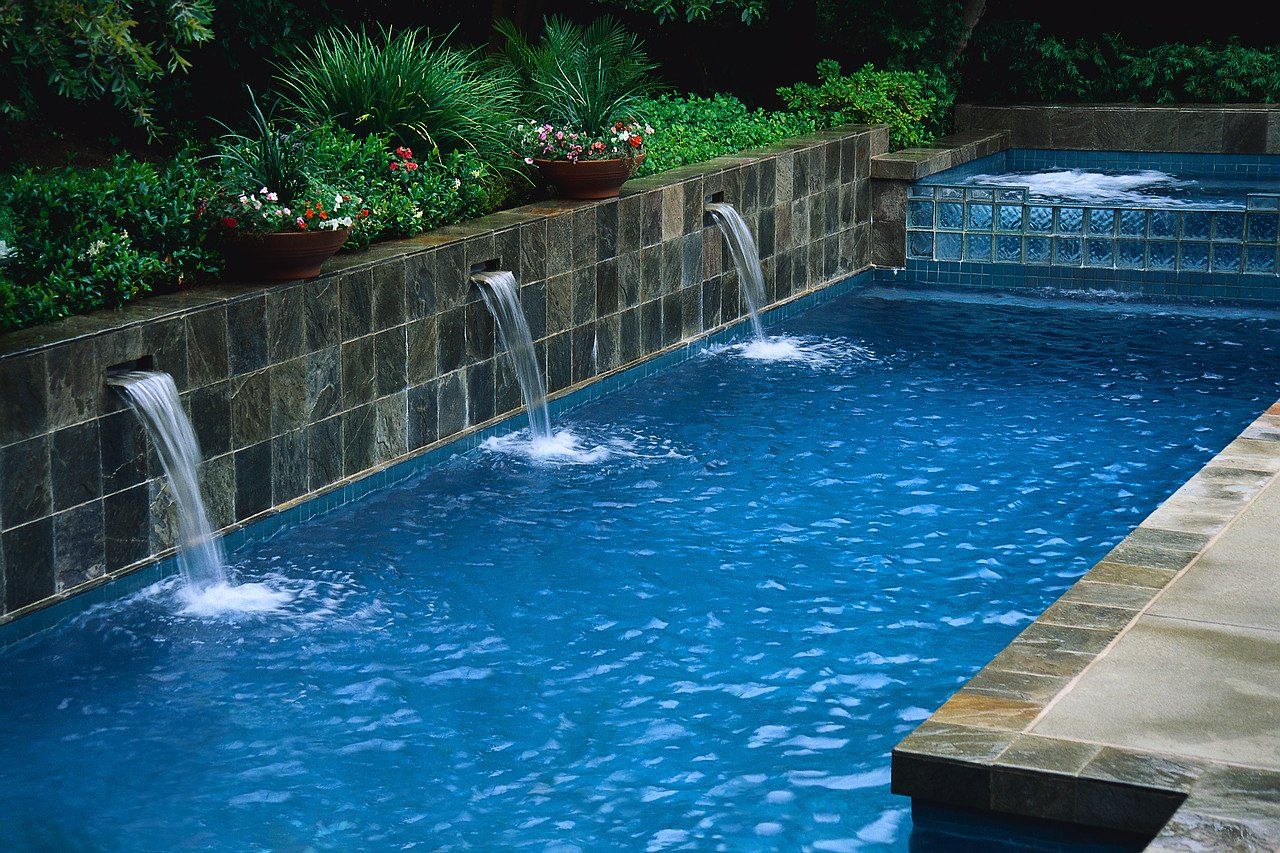WHEN TO DRAIN A SWIMMING POOL
When Should You Drain Your Swimming Pool?
Pool maintenance is very important, but pool owners don't need to drain their pools as often as some think. However, there are also some circumstances where it’s necessary to drain your pool entirely. These reasons usually have to do with water quality or repair needs.
When and Why You Should Drain Your Pool
Pools usually don’t need to be drained. You could damage the pool by draining it without first checking to see if it needs to be drained. To ensure that it does not, experts have figured out methods of draining a pool without damaging it. However, there are reasons why you might consider draining your pool:
- Your pool needs some repair works
- Repainting and/or refinishing
- Total dissolved solids levels
Total dissolved solids (TDS) are the substances that build up in the pool water over time. Eventually, they cause the water chemistry to become very unstable. This means that more and more chemicals are required in order to maintain your pool water within the correct parameters. Fortunately, you can solve this problem without draining the pool entirely.
If you need repairs or refinishing on your pool, we’ll handle the drainage process. It's often the best idea to drain your pool properly. Water damage from leaking pools can do more harm than good. If you’re going to be fixing or refinishing your own pool, it is important to educate yourself about your type of pool.
What Time of Year is Best to Drain Your Pool?
The type of material that your pool is made out of will affect how well it withstands exposure to the elements. This is why the best time to drain your pool is during the mild months of the year. If the temperature is expected to be over 85 degrees at any point during the processing, it is best to hold off on the start. The same is true of water temperatures that are near or below freezing.
Because of these temperatures, the best time to drain a pool is usually in the spring or fall. Spring is the perfect time to start your backyard swimming pool because the water will be cleaner by the end of summer. Fall can be a great time to take a vacation, but most professionals do not recommend leaving your pool empty over the winter. So you will need to at least partially refill it.
Why You Should Drain Your Pool Periodically
One of the most important reasons to drain your pool is to deal with the levels of TDS.
When the TDS level in the water gets too high, it causes the chemicals to interfere with the water’s ability to keep the water clean. There are a lot of chemicals, and they're not good for the pool or the water. Eventually, there’s always a point at which adding more and more chemicals into the water won’t make it work better.
Most professionals recommend draining your pool every five to seven years in order to keep TDS levels low. The drainage of your pool depends on a number of factors. You need to consider the overall use of your pool and what the maintenance routine looks like. When the pool is partially drained, it's important to drain the pool to eliminate algae growth and prevent further TDS buildup.
Proper Way to Drain Your Pool
Before you drain your swimming pool, you need to determine if the groundwater levels are right for it. If water levels are high enough, they can actually make your empty swimming pool pop out of the ground. Fiberglass and vinyl liner pools require special treatment because they are usually not built to be completely drained out. Removing the water from these pools can lead to a change in the surface that causes bowing or cracking of the surface.
A great idea for a pool owner is to evaluate the groundwater situation and assess the needs of your type of pool before choosing the best way to drain your pool. You can often find these at pool supply stores or hardware stores. The filter pump is a good idea for draining a swimming pool, but it can damage a piece of equipment that is expensive.
If you need to drain the pool, you’ll first need to shut off the water valve at the inlet. Sewer lines have no ability to handle large amounts of water at one time, so the outflow should be kept under about 12 gallons a minute or less. It’s possible to drain a pool with a garden hose in a couple of hours, but the process takes a bit of practice and attention. It would then have to be partially refilled, so you could expect it to take a couple of days to complete.
There are many reasons that you might want to drain your pool completely or partially. Though it's a big task and doing it wrong can result in unwanted consequences. Planning ahead can help you avoid a big headache down the road.
Risks of Improperly Draining Your Pool
Here are a few risks:
- Your pool can heave out of the ground
- Your pool can be damaged by sun and exposure
- Your filter pump can damage or burn out
- The sewer system can be backed up into your home
A pool that’s heaving out of the ground because the groundwater level is high is a serious problem that should be taken seriously by everyone. After a few days of heavy rain, this is the case all of the time. Or it might be the case all of the time. When your pool doesn't drain properly you'll see it floating on the surface of the water.
An empty pool is also at risk for exposure to the elements. When emptied, vinyl pools contract and can cause damage when they are refilled. Fiberglass pools are durable, and when they are drained and filled, the pool can't get any bigger. It's illegal to drain a fiberglass pool. You're at risk of damaging your pool and voiding your warranty.
If you don't adjust your pool filter properly, pool pipes, and waste lines, you could damage or burn out your pool’s motor. This may happen if the gallons per minute (GPM) of your pump is greater than the GPM capacity of your waste line. Sometimes the filter won’t hold enough of the air and can actually suck air into it. This results in running out of air, as well.
Many communities don’t allow you to dump your pool water just anywhere. The approved location is the sewer system. Your wastewater treatment system should have a capacity large enough to handle the volume of waste coming from your home.
When to Contact a Professional
If you aren't sure if your pool needs draining, it may be best to have it checked out by a professional. You can often fix a pool yourself or get your pool repaired without having to replace the whole thing. Often, problems with the pool’s water need only be treated. If you do not know what the water table is in your area, or you are not completely certain that you know how to drain your pool, talk with a pool pro who can help out.






